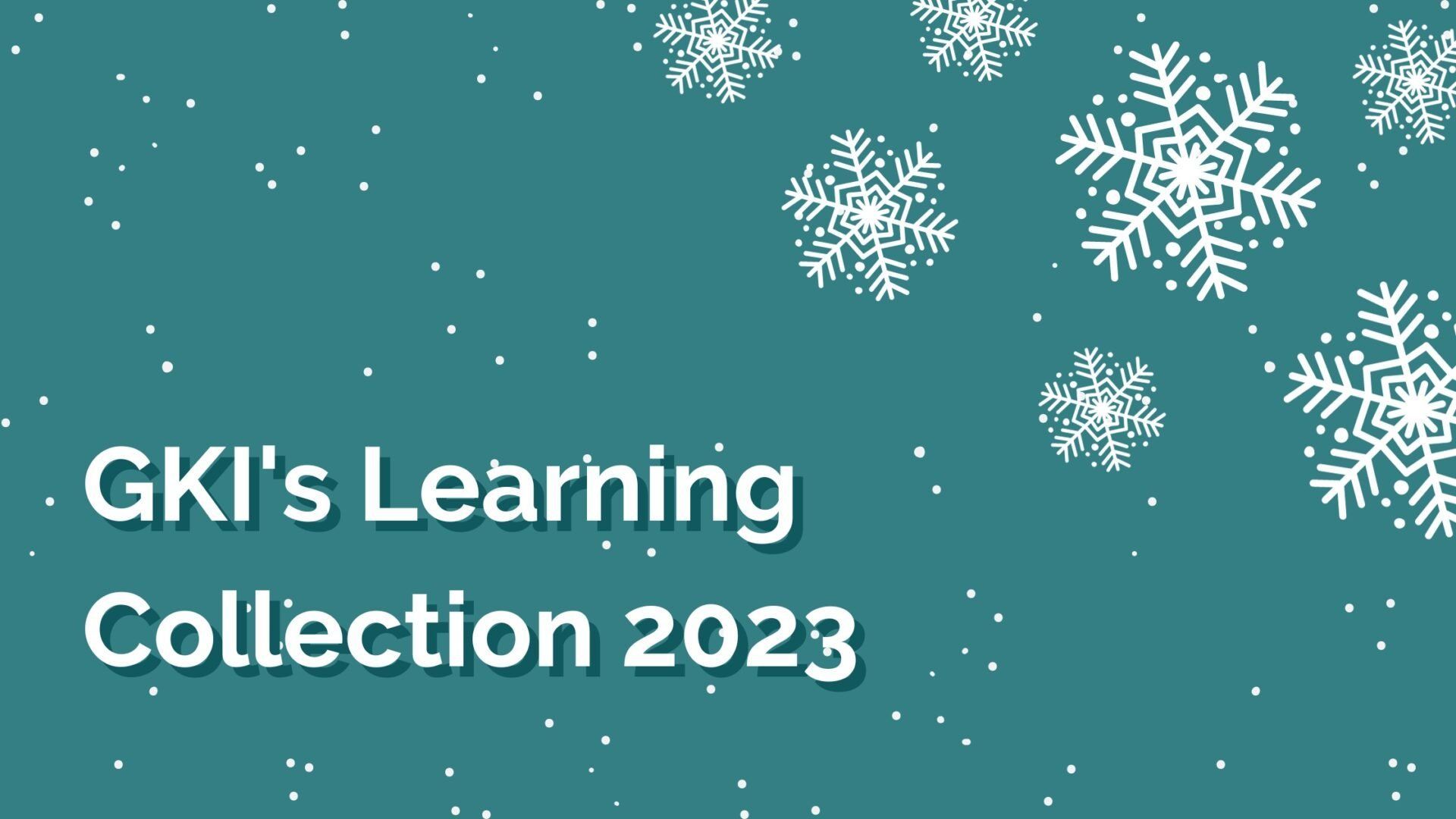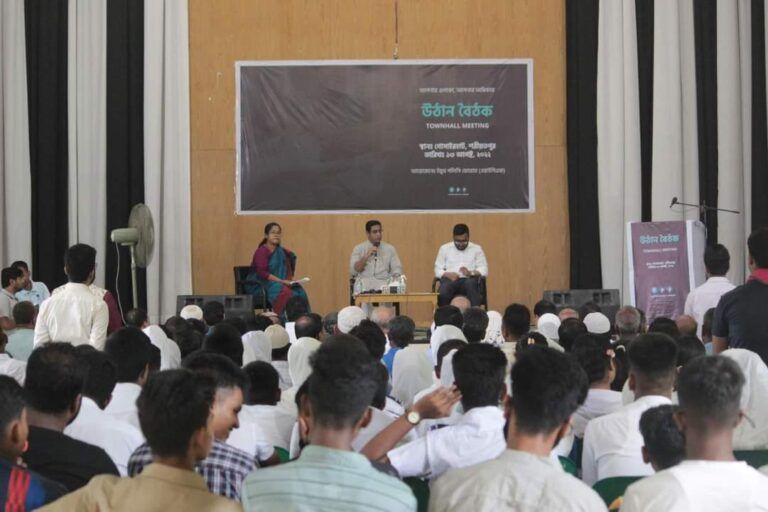Learning’s in our DNA: GKI’s Learning Collection 2023
As an organization, GKI prioritizes learning. We celebrate exploration and create opportunities to learn from one another. As we head into the holiday season, our team looked back and shared what challenged our thinking in 2023. In our second annual learning review (see last year’s here) below you’ll find a range of books, podcasts, and articles to check out. Let us know what’s challenged your thinking this year and what you look forward to learning more about in 2024.
“One thing that I really loved about this learning session with MIT’s D-Lab (GKI hosts weekly internal learning sessions with guest speakers) back in June was gaining a better understanding of how they thought about bringing others to the table and the spectrum of engagement. They broke it down in a really interesting way, and I like the practicality of the way the toolkit is formatted. As new programs begin, it’ll be fun to revisit and remind ourselves what we want participation to look like as we continue to be systems thinkers and move the needle on how we envision being collaborative.” – Gabby Rivera, Manager
“This book looks at the story of Jane Goodall and her thoughts on how we perceive ‘hope’ today. It was a fun listen and inspiring to understand the importance of having hope and gave examples of reasons to explore why we should continue to have hope regardless of dominating narratives on social media.” – Gabby Rivera, Manager
- “Conditions to Flourish: Understanding the Ecosystem for Narrative Power” by Abi Knipe and The relationship between language and neo-colonialism in the aid industry (Centre for Humanitarian Leadership)
“Language holds a lot of power. It has a way of shaping and influencing yourself and others, but we might not always pay attention to the words we use. As new practices emerge, they often get interchanged with similar or related concepts so it’s important to understand what we mean by them. One of the definitions of “narrative” comes from a report by the Global Narrative Hive:
‘Narratives [are] a collection of stories connected by a set of common values and a shared understanding of the world. These are usually [repeated] through different voices and channels in our societies in a way in which they slowly…become perceived as common sense. Narratives are a form of invisible power. They allow power to recreate itself and shape voices and stories. We assume some are worth listening to and lead people to think that the world is [how it should be].’
“I found the different learnings on language and narrative informative for how we might use them to shift people’s mindsets.” – Natalia Oyola-Sepulveda, Senior Manager
- Uri Levine’s Fall in Love with the Problem, Not the Solution: A Handbook for Entrepreneurs and Greg McKweon’s Podcast: Episode 167: HOW TO FALL IN LOVE WITH THE PROBLEM, NOT THE SOLUTION WITH URI LEVINE (PART 1) and 169: HOW TO FALL IN LOVE WITH THE PROBLEM, NOT THE SOLUTION WITH URI LEVINE (PART 2)
“The principles mentioned in the book were really relevant to our programming this year! For example, on CCIR, There were so many things that we couldn’t anticipate but also things that we could somewhat prepare and be agile to. Resilience can mean a lot of different things, and I think the cool part of what we do is to provide the systems thinking or systems change methodologies to zoom in and zoom out. That doesn’t mean to find the Silver Bullet but to finding the little parts of the big wheel that need to start cranking through ‘loving the problem, not the solution’.” – Alycia Ikegami, Manager
- Fresh Air Podcast Episode: Unmasking AI’s Racism And Sexism and Responsible AI in Philanthropy (TAG) and The Guide to Usefulness of Existing AI Solutions in Nonprofit Organizations (Net Hope)
“One of the biggest lessons that I’ve gotten from learning related to integrating AI into our work is that AI is just a tool, reflecting both the good and bad of people. Tat’s true for any technology in history. Having this perspective was helpful to getting past some of my initial discomfort. … Of all the varied resources I’ve been consuming and compiling, I thought this Joy Buolamwini interview for Fresh Air really broke down concretely how AI can amplify bias in practice, whereas the Responsible AI framework grapples with how to responsibly apply AI tools in work for the social good – given risks such as ingrained bias. The NetHope guide is just simply a super useful place to start given all the tools and options out there all of a sudden. AI is here to stay, and we all need to adapt and find ways to use these tools effectively and ethically.” – Megan McGlynn Scanlon, Chief Operating Officer







